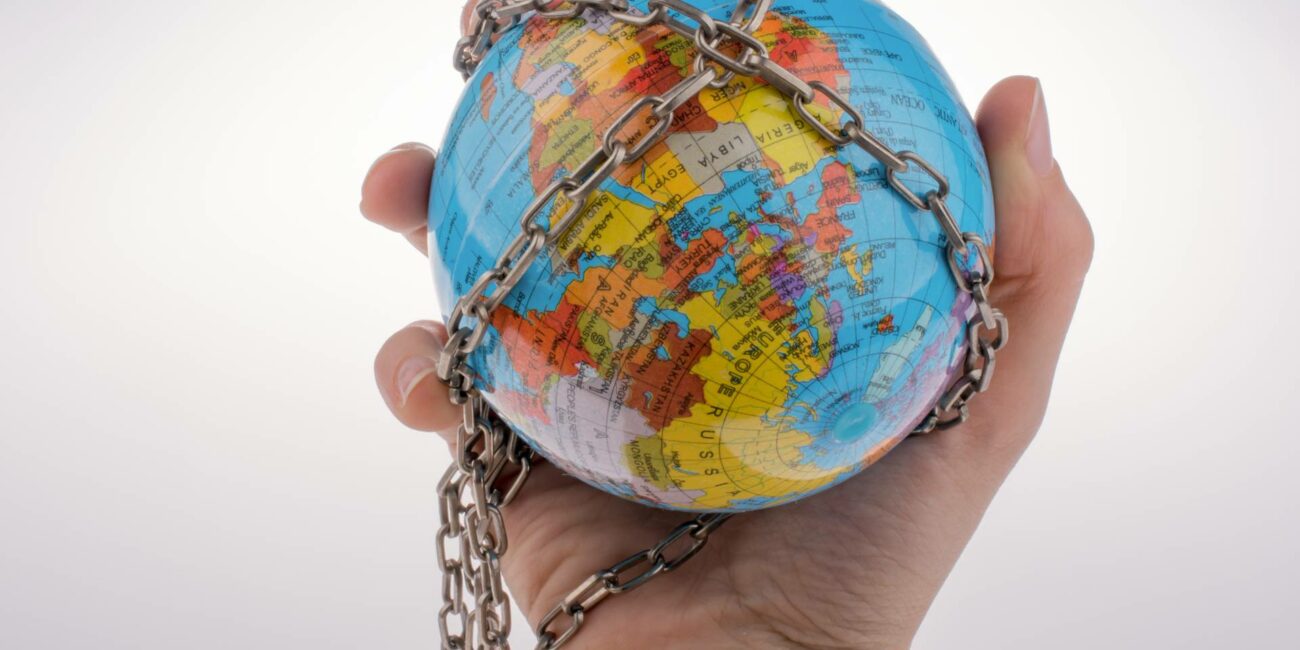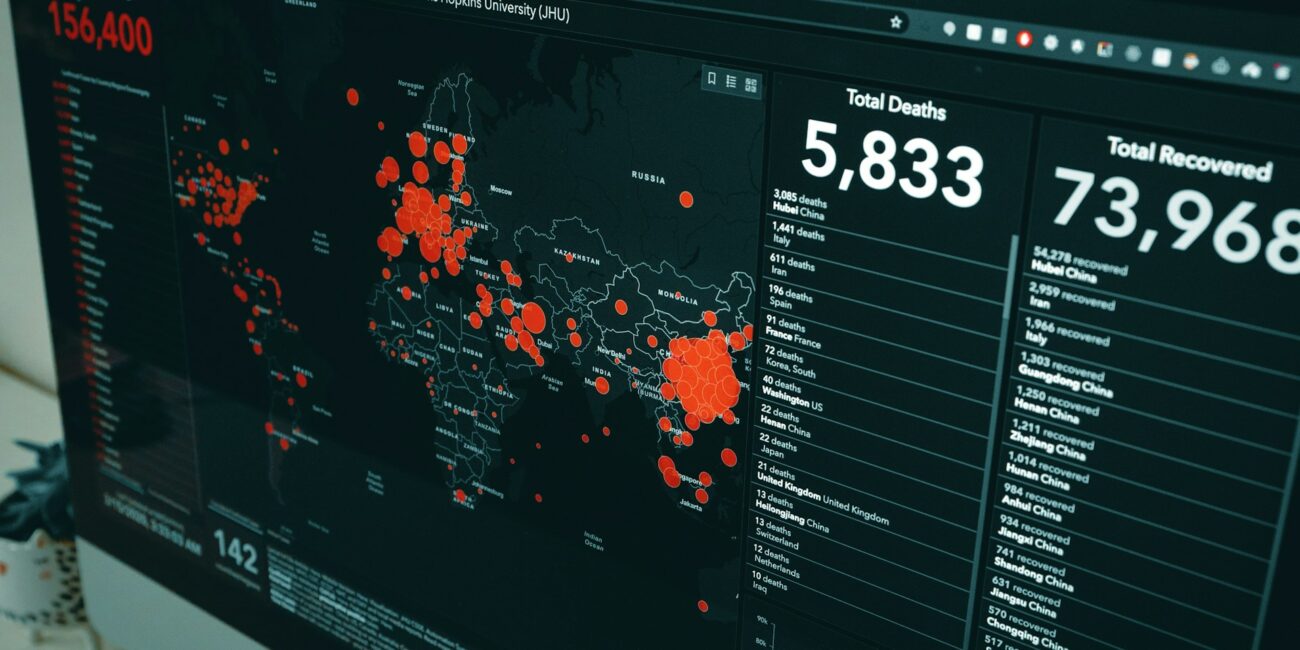Are ‘the people’ sovereign in a democracy?
Constitutions that safeguard individual rights are meant to be expressions of the sovereignty of ‘We the People’ (as the Americans put it), yet any cursory glance at the history behind the promulgation of liberal constitutions demonstrates that this is an illusion. Constitutions are written by elites, not by the people.
Self-evidently, the authors of the US Constitution did not, and could not have known what ‘the people’ believed or wanted when they wrote those very words, ‘We the People’. Indeed, most of the Constitution’s framers arrived in Philadelphia in 1787 unaware that they were meeting to write a new constitution.
The 39 signatures upon the final US Constitution, drafted in a four-month-long convention to be sovereign law for millions in perpetuity, represent the inevitability of elitism even in republicanism and democracy. Thus I do not use the term ‘elite’ here in a pejorative sense, but rather in a sociological sense, to denote the smaller, select class of people who inevitably wield outsized influence in any society.
Once such a constitution, framed by specific people, is established as supreme law, sovereignty of the people is then deliberately restricted. The constitution is barely amenable to any change or amendment, precisely to protect it from the ‘whims’ of the electorate. The ‘power’ of the constitution is passed on from its framers, to another select group of people, the jurists and politicians who interpret and execute its dictates. Such people are prone to the self-interest of the elite class from which they hail, even as they assume power as guardians of ‘living constitutions’.
Such power is far greater than any power resident in the text of these constitutions. How else to explain the revolutions in government power that have been taking place in democracies around the world, even before Covid, without the actual constitutional texts changing?
The Covid event affirmed in our own time quite conclusively that the power of interpretation goes beyond the constitution itself. Constitutional rights were suspended around the western world in the face of a public emergency. True power lay with those who decided this exception. ‘Separation of powers’ meant nothing during the exception: judges refused to hear challenges, and legislatures around the world barely lifted a finger against executives who locked up their own people.
If constitutional law did nothing to affirm the doctrine of popular sovereignty during the crisis, what of the people’s voice in the franchise? Surely, that is where the people’s power lies, in the electorate’s ability to boot out elected officials who threaten their wellbeing?
Well, have any Covid overlords fallen? Yes, Trump and Johnson have been ousted in the US and the UK, but largely by people who wanted stronger suppression of civil liberties. The sceptics and opponents of lockdowns and mass vaccination have certainly had some successes, and their strength has factored into the balance of forces, but, as yet, these forces of resistance have not entered the corridors of power, as you would expect after such an obvious political disaster.
Equally, in the face of media conditioning, it is by no means clear that individual choice in selecting or deselecting leaders is nearly as autonomous or powerful as we have been led to believe. Oswald Spengler wrote of the free press in Decline of the West:
“It does not spread ‘free’ opinion—it generates it … The reader neither knows, nor is allowed to know, the purposes for which he is used, nor even the role that he is to play. A more appalling caricature of freedom of thought cannot be imagined. Formerly a man did not dare to think freely. Now he dares, but cannot; his will to think is only a willingness to think to order, and this is what he feels as his liberty.”
Perhaps the people do not elect the representative; instead, the representative gets himself elected, by means of powerful friends.
This leads to another concern regarding the power of the people.
Are the people ever truly represented by their representatives?
Empirically speaking, the answer is no.
A Princeton study of 2014 that examined 1,779 policy issues concluded:
The central point that emerges from our research is that economic elites and organised groups representing business interests have substantial independent impacts on U.S. government policy, while mass-based interest groups and average citizens have little or no independent influence.”
Some examples:
- Liberal California has rejected gay marriage and affirmative action in past referenda. The media and the Supreme Court would decide the issue for them, against their choice. Public opinion followed.
- It is widely accepted that British voters chose Brexit because of fears of overwhelming immigration. After Brexit, immigration has increased under a Conservative government, which continually promises reduction. Indeed, all European legislation was specifically retained pending ‘sunset’ in 2023. This sunset has now been cancelled.
This is obviously extremely concerning as we face the escalation of biosecurity states, and as sovereignty is removed even further from the people by means of globalist capture of territorial states. If the people do not have the power we are told they have, and if their political beliefs are largely at the mercy of the corporate media behemoths, what can be done to stave off impending disaster in democratic states?
In this regard, it may be profitable to re-acquaint ourselves with Machiavelli’s lions and foxes, as well as the theoretical development of these political types in the Machiavellian-inspired school of ‘elite theory’ that posits the above thesis regarding power and its inevitable top-down nature, even within liberal democracies.
For if it is the case that ‘elites’ always rule, then it is necessary that those opposed to the ongoing revolutions in public health and safety perceive clearly these tragic realities of power, so as to understand the true nature of liberal democracies.
Rather than simple opposition within the status quo, new political realities will need to be imagined and created, which allow not only for a saner polity, but equally one in which the threats of tyranny and the abuse of power are properly understood and mitigated – because we have made visible the inevitability of elite dominance even in a democracy. Once the people know who rules them, and once they understand the limited accountability provided by elections, ruling elites can be made far more accountable to the ruled.
In short, it would be necessary to adopt strategies that are not limited to the arena of electoral politics or wrangling over the letter of various constitutions.
With this in mind, in order to understand the tenets of elite theory as applied to our contemporary moment, we would do well to take heed of the lessons contained in an important recent work by Neema Parvini entitled The Populist Delusion.
In this work, Parvini argues that just as fire drives out fire, so we require new elites if we are to drive out the current elites. To make this argument, Parvini cites a series of thinkers who each demonstrate in different ways ‘the populist delusion’ that ‘the people’ can fundamentally alter the state in a democratic uprising.
Parvini maintains that it is a kind of delusion that the American, French, or Russian Revolutions were organic mass uprisings. He cites the fact that the Civil Rights, LGBT, and BLM movements in the US were and are successful because these movements are driven top-down. In contrast, the French ‘yellow vest’ movement, the American January 6th Capitol protests, or even the Trump presidency itself, all fizzled out because they were merely ‘populist’ in nature and lacked the backing of elite power and its consequent organisational discipline.
It is not necessary to delve into the nuances of each thinker Parvini profiles; rather, it will suffice to focus on the first three thinkers, collectively known as ‘The Italian School of Elitism’.
- Gaetano Mosca
Mosca maintained that every society always consists of rulers and the ruled. The larger the society, the smaller the proportion of rulers. This is simply the only way any body of human beings functions. The ruled acquiesce because they believe in the political formula offered to them by the elites – be it ‘the divine right of kings’ or ‘government of the people, by the people, and for the people’. The best we can do is to mitigate this by encouraging competing sets of powerful minorities. According to Mosca, the rule of the elite is stable as long as there is a kind of moral unity between the two classes. When that unity breaks down, the regime is vulnerable to counter-elites who can offer a new formula. In this sense, ‘the ruled’ do have agency. Once enough of them ‘see through’ the old formula, the regime can be toppled.
- Vilfredo Pareto
Pareto is the most important thinker for our present purposes. He is famous for the ‘Pareto Principle’ whereby the ‘20’ are always responsible for the ‘80’. Thus he agrees with Mosca that society is ruled by elites, or the ‘vital few’. He offers more detail regarding the nature of these elites by describing two specific classes. ‘Class I’ elites are ‘combiners’ who innovate and create new systems and technologies. They are akin to Machiavelli’s ‘foxes’ who rely on guile and persuasion to retain power. ‘Class II’ elites are strong in persistence, and build systems for the polity. They are patriotic, brave, and willing to use force to maintain tradition. They are akin to Machiavelli’s ‘lions’. All change in society is driven by interaction between these two classes and their proportion relative to each other in the ruling class. When foxes dominate for too long, and alienate enough lions, the lions will organise into a counter-elite that can successfully re-take power. To do this they need the assistance of enough foxes to make up for their weaknesses in rhetoric and innovation. The opposite is true too. Crucially, Parvini points out that in the western world since 1945, foxes have predominated amongst elites. However, many foxes are now being excommunicated from elite classes because of ideological cleansing. Thus, alienated lions will soon have the necessary foxes to lead a counter-elite revolution.
- Robert Michels
Michels built on the work of the other two, famously formulating ‘The Iron Law of Oligarchy’, which states: “Who says organisation, says oligarchy.” This is the case because it is impossible for the will of the people or an individual to be transferred to a representative. Any organisation must have leadership; its members cannot be ruled by committee or referendum if they are to survive, and the leadership will always be able to sway the rest of the organisation, whose members are engaged in their own daily lives and responsibilities. Citizens will generally imbibe the ideology of their leaders. Most people are not activists or theorists. Psychologically, the people welcome strong leadership – until those leaders go too far and intrude too much. (Think of masks, vaccine passports, and pending climate restrictions.) Equally, these same leaders and their bureaucrats will gradually degenerate, as loyalty to the leadership becomes more important than competence in running the logistics of the organisation. Disaffected ‘visionaries’ can then come to the fore, working with the people.
Parvini goes on to profile other thinkers too:
- Carl Schmitt, who famously pointed out that ‘sovereign is he who decides the exception’, he who represents the state theology; thus any state will always have defined friends and enemies, neutrality being a myth;
- Bertrand de Jouvenel, who proposed that the elites, ‘the high’, maintain power through an alliance with ‘the low’ whom they promise to liberate at the expense of ‘the middle’, those who attempt to maintain independence from the state (again, this ‘middle’ can partner with a new set of ‘high elites’ as the old order crumbles);
- James Burnham, the former Trotskyist, who believed that the modern world was neither capitalist nor socialist but ‘managerial’, governed by public-private partnerships, exemplified today by the likes of the Ford Foundation, Blackrock, Vanguard, and the elites’ enforcers in the shape of climate and diversity czars; freedom from this ‘totalitarian democracy’ could, however, be won by new groups of elites enforcing rule of law and diffusion of power to maintain their status;
- Paul Gottfried, who suggested that the liberal state has become ‘the therapeutic state’, and thus ‘the harm principle’ has been weaponized and expanded in order to deem all opposition unhealthy and irrational, and merely ‘political’. Here the book quotes Tony Blair: “It’s an indication of how broken politics has been that the issue of vaccination should become political. I mean it’s just a question of science.”
Could it be that Parvini is correct, and that the abuses of power in recent years affirm ‘elite theory’?
Those who disagree would need to explain why, despite so much recklessness and destruction, there has been no overthrow of the elites, and certainly no disavowal or great reckoning of their actions.
For the moment, let us take Parvini’s position as a given. What happens next?
In this regard, Parvini’s work is by no means pessimistic, even if he suggests that the masses themselves can never take back their freedom in a populist uprising. Throughout the work, he points out weaknesses in the current regimes of the western states, even as freedom and health are suffocated.
To wit:
- Elites have pushed too far in their health and safety protocols. Masks and vaccines could be foisted on the world, but only for so long. Gender activism has reached levels of absurdity. Pending climate measures will likely receive similar scepticism. The political formulas of ‘staying safe’ and ‘following the science’ are rapidly losing legitimacy. The people are ready to hear new formulas from counter-elites.
- Regimes are increasingly incompetent and weak. They are unwilling to use the force necessary to stamp out dissidence completely. Contrary to popular belief, regimes do not fall due to heavy-handedness, but rather its opposite. Parvini believes that while censorship and treatment of dissidents have escalated, western regimes lack the strength to utterly eliminate enemies of the state.
- Too many ‘foxes’ have been cast out by elites for ‘wrongthink’. The ‘lions’ who value tradition and patriotism are waiting for their leadership and inspiration. There is now significant talent outside of the ruling elite, and counter-elites are readying themselves.
Are Parvini and the elite theorists correct?
Certainly they must be to some extent, given all that has happened.
However, one does not need to embrace ‘elite theory’ in totality in order to benefit from its insights. In the fight against the totalitarianism emergent within our liberal democracies, it will be enough to heed the following lessons offered us by elite theory:
- In the age of mass media and digital technology, the majority will very often be wrong. We have already seen how the constitutional protections afforded to a dissident minority will be swept away during an ‘exception’. Attempts to break up the narrative foisted upon the masses are therefore very important. Alienated foxes like Elon Musk and Tucker Carlson; the figures who make up PANDATA; the signatories of the Great Barrington Declaration; or dissidents like Robert F. Kennedy Jr (and yes, Donald Trump too) are necessary to dismantle old political theologies.
- However, very often our corrupt elites will still be able to maintain the support of De Jouvenel’s ‘low’, the foot soldiers of movements that only appear to be ‘radical’. Think here of LGBT, BLM, and Antifa, who always operate in lockstep with corporate and academic bureaucrats, as well as with the everyday people who policed social distancing, masking, and mass vaccination. An ‘aristocratic middle’ (think here of the Dutch farmers, the Canadian truckers, and South African business owners fighting affirmative action and power cuts) who do not rely on government largesse, and who crave independence from both ‘high’ and ‘low’, must thus resist, and be encouraged to resist, the mass movements incited by the elite class. At all costs, they must refuse to be mere scapegoats, awaiting their sacrifice upon the altars of ‘climate’ and ‘health’.
- Even for those who disdain the notion of the inevitability of elitism, or those who believe that democracy can be restored within present constitutional orders, it is necessary that this restoration be led – led by foxes and lions who, in essence, offer themselves as counter-elites. These foxes will need to present to the ‘ruled class’ a new formula, and a new moral unity. In so doing, they must work with lions waiting to be mobilised, be they disaffected industrialists looking to overthrow the regime of ‘ESG’ and ‘stakeholder capitalism’; military leaders who oppose aggressive NATO globalism; or church leaders disgusted by the ‘woke’ capture of their faith communities. There is only one formula that will work for these lions and the independent middle: a formula of decentralisation, a repudiation of the Babel-like structures of globalism that seek to homogenise the world in a technocratic, post-political order. Only foxes who speak this language will be heard by lions, by members of ‘the middle’, and indeed by the significant number of all non-elites desperate for change and relief from the totalising status quo.
The overriding lesson is that simply ‘voting harder’ will not get the job done. Marshalling the forces above will take a new set of leaders – leaders who do not disdain and ignore ‘the people’, as the current set does, but equally leaders who do not simply rely on the old structures of mass democracy to get the job done.
However, the window of opportunity will not be open for much longer. The technology wielded by the current regime – in media, finance, science, medicine, and the food supply – is powerful and threatens the freedom of counter-elites to organise and act.
If we mistakenly and quixotically wait for ‘elections’ and ‘the people’, it will be too late. Whilst the current elites shriek about booster shots, safe spaces, and sex change flags, the Winter Palace waits to be seized.
Chris Waldburger is a South African writer, teacher, student of literature and philosophy. He can be followed on his Substack.
Chris Waldburger is a South African writer, teacher, student of literature and philosophy. He can be followed on his Substack.




